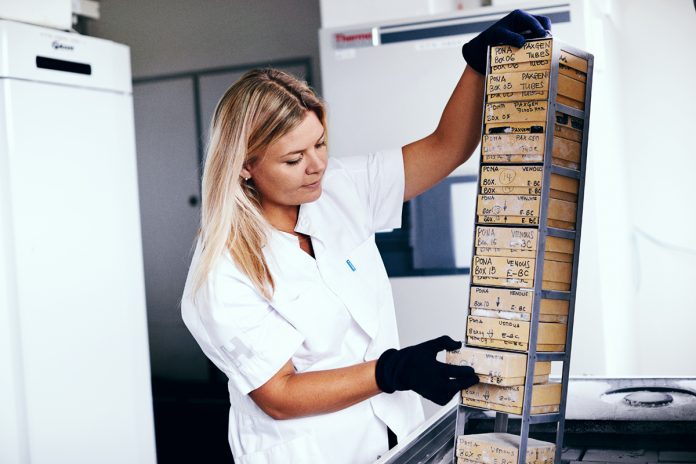In this analysis, the Danish Diabetes Academy explains how they intend to train and educate the world’s best (young) diabetes researchers
Education, networking and scholarships are keywords at the Danish Diabetes Academy (DDA). The DDA collaborates with universities, hospitals and the life science industry to keep Danish diabetes research education at the highest international level.
Around 422 million people in the world have diabetes. According to the World Health Organization (WHO), 1.6 million deaths were directly caused by diabetes in 2015 and every day millions of people around the world struggle with complications of diabetes such as blindness, kidney failure, heart attacks, strokes and lower limb amputations.
There are clearly many reasons to develop new knowledge to promote better prevention and treatment of this devastating disease, which is exactly what the DDA facilitates and has been doing since 2012.
The DDA is a networking and education platform funded by the Novo Nordisk Foundation. Its mission is to educate and train the next generation of researchers in the field of diabetes. Not only does the DDA want to train and educate the next generation, but the DDA also aims to train and educate young researchers to be among the best diabetes researchers in the world.
Taking diabetes research training to new heights
As the main mission of the DDA is to educate the world’s best diabetes researchers, the DDA is very ambitious when it comes to strengthening the research training available to PhD students and postdocs in the field of diabetes.
It is the DDA’s ambition to educate young researchers to provide them with a holistic and innovative cross-sectoral and interdisciplinary mindset and approach to their work so that they can set the future scene for developing new prevention programmes and treatment methods to combat the disease. This cannot be done alone, which is why the DDA organises up to 20 educational activities annually in close collaboration with academia, hospitals and the life science industry, but also with research institutions abroad.
Educating young people to become future top researchers in the field of diabetes means offering them the opportunity to continuously develop their professional skills. Therefore, the DDA constantly goes the extra mile in arranging events and activities to challenge young researchers and really make them feel that the DDA takes its responsibility very seriously.
“For example, with the support of the strong Danish university-based diabetes community, we have established strong collaborative relationships with research institutions from Germany, UK and the U.S. and this has quite definitely raised our profile in the provision of educational activities”, explains managing director Tore Christiansen.
A national and international diabetes networking hub
Growing new networks to connect diabetes researchers from different research disciplines and sectors and cultivating those already in existence is a cornerstone of the DDA. A particular focus for the DDA in the coming years will be facilitating improved collaboration between academia and the life science industry.
By acting as a bridge between academia and industry, the DDA can encourage translational research while at the same time, providing young researchers with invaluable training and perhaps also the opportunity to make a career in life science.
“We have already established a fruitful collaboration with the biotech firm MedImmune, with young postdocs from two Danish universities set to work closely with researchers from MedImmune. These young postdocs will thus be drawn into the DDA’s educational activities so that they can teach young PhD students about the opportunities available in the life science industry. We hope to establish several such collaborations with national and international life science companies, perhaps within the EU’s Innovative Training Network programme under the Marie Skłodowska-Curie actions”, reveals managing director Tore Christiansen.
Each year, the DDA arranges the DDA Annual Day, a networking day for junior diabetes researchers in Denmark. This offers junior diabetes researchers a tremendous opportunity to present their latest research findings and to meet other young diabetes researchers in other research disciplines.
“We find that opening doors to all kinds of diabetes research stimulates young researchers to come up with new research ideas, which is very inspiring”, says managing director Tore Christiansen.
The recruitment of talented national and international diabetes researchers
Among the 100 young diabetes researchers to be recruited by the DDA over the next couple of years, the DDA aims for 30% of these to come from abroad. One way in which DDA will attempt to achieve this is through the EU’s Marie Skłodowska-Curie actions in Horizon 2020, where the precise aim is to stimulate regional, national or international programmes to foster excellence in researchers’ training, mobility and career development.
“In addition, the DDA always advertises through international channels when announcing grants and the DDA does its utmost to help applicants from abroad make contact with Danish senior researchers. We’ve had good past experience of this”, says managing director Tore Christiansen, who also points out that the quality of grants awarded by the DDA can best be ensured by our strong international panel of experts in basic and clinical research, who assess all applications.
The DDA’s research grants are always awarded in open, free and transparent competition, with priority given to applications supporting the three major strategic areas of the DDA: internationalisation, interdisciplinarity and collaboration across sectors.
“Over the past five years, we have wholly or partly funded in the region of 150, mainly young, researchers, many of whom now hold good posts in the life science industry, at universities or in hospitals. I am certain that, with its provision of educational and networking activities, the DDA has played a part in shaping their careers”, says managing director Tore Christiansen.
Please note: this is a commercial profile
Danish Diabetes Academy,
established in 2012
Funded by the Novo Nordisk Foundation (grant number NNF17SA0031406)
Located at Odense University Hospital,
Denmark
www.danishdiabetescademy.dk











